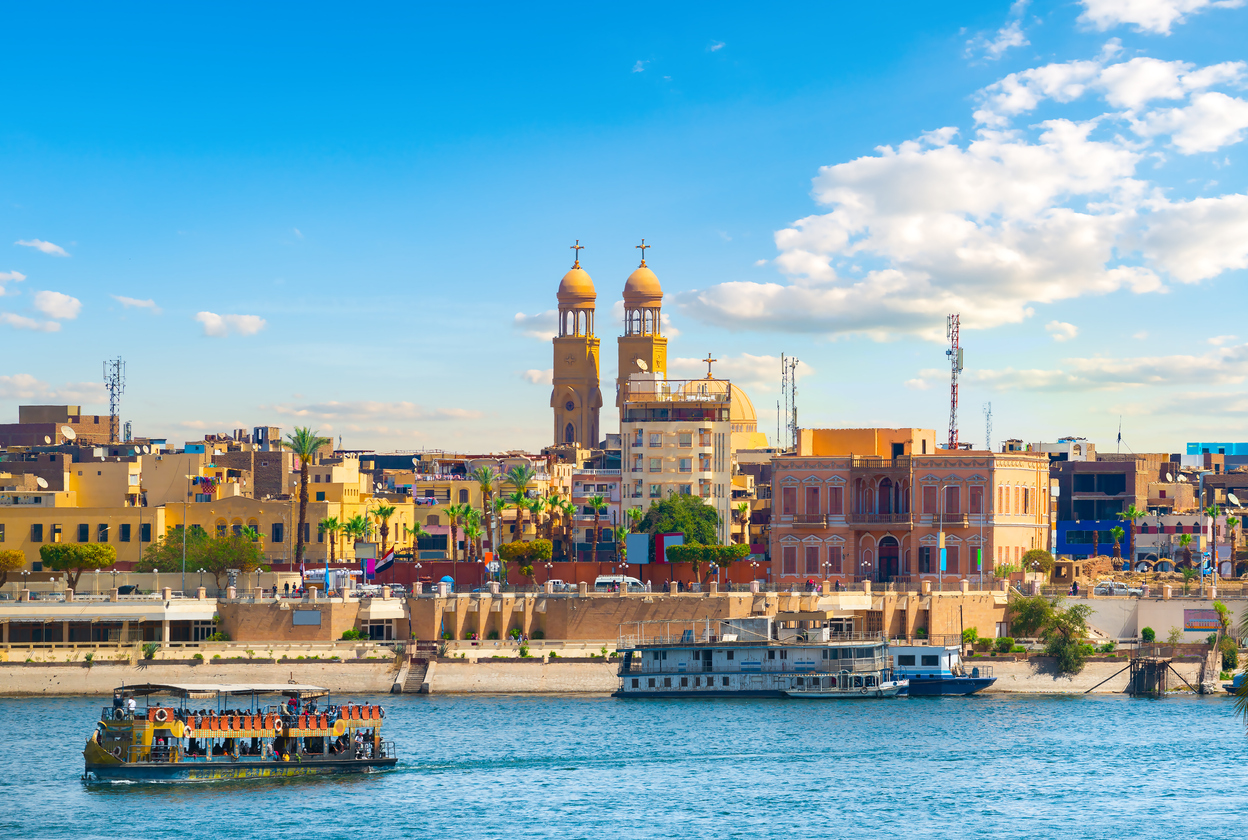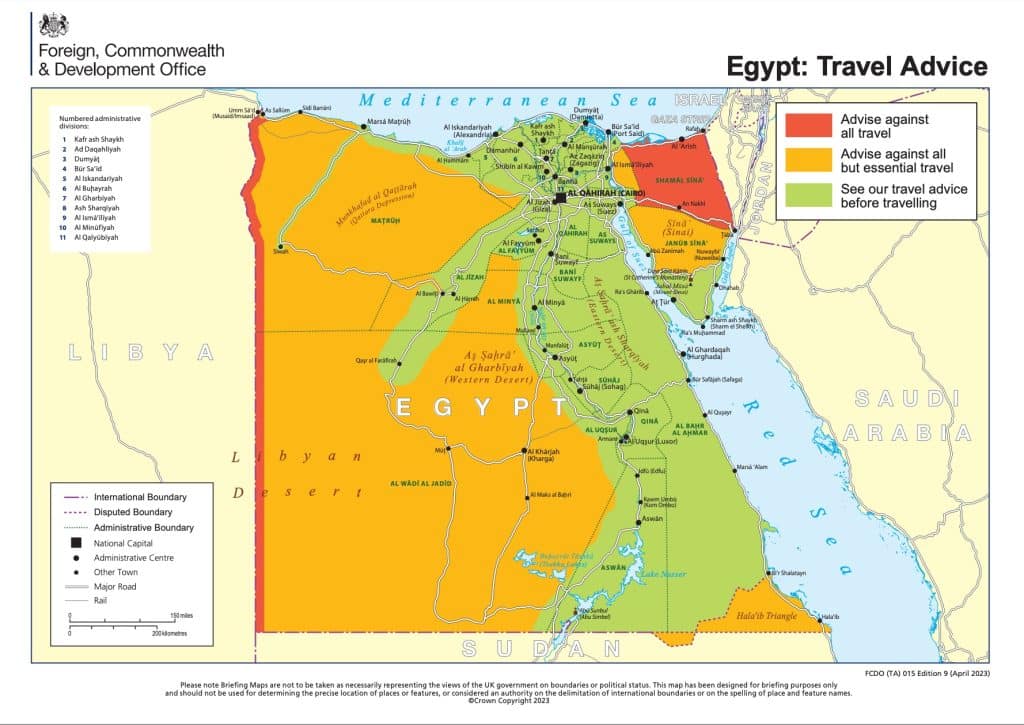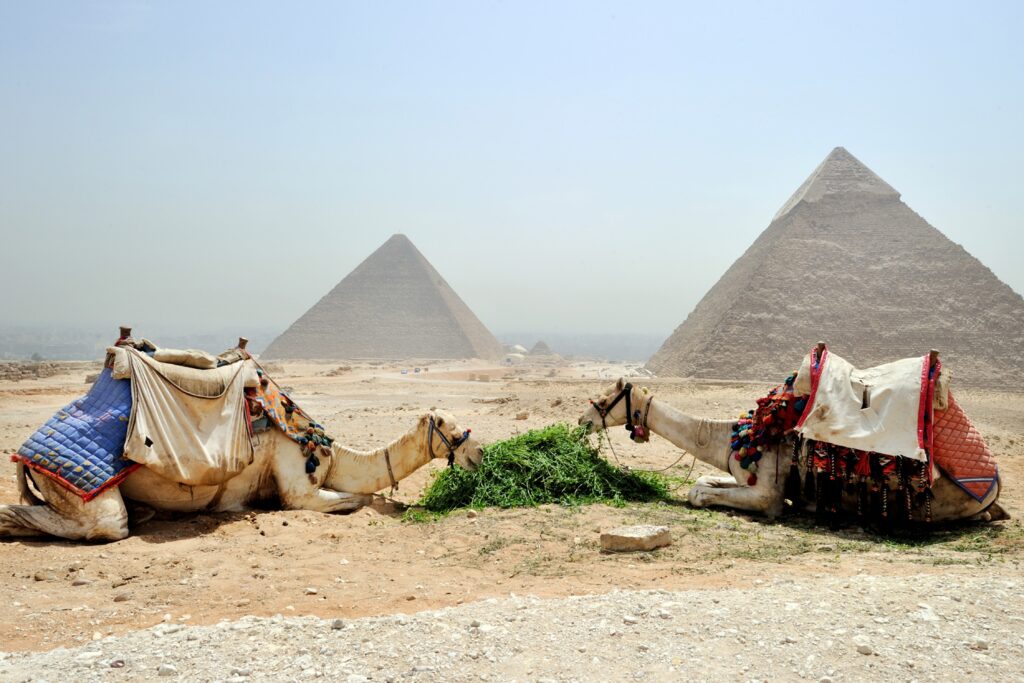Travel
Is Egypt safe to visit now? Travel advice 2024

Egypt is a place that every traveler must visit at least once in their life. But should you travel to this ancient land now during the conflict in Israel and Iran’s recent involvement?
Overall, Egypt is a safe place to visit. You may encounter petty crime and scams, but that is the extent of crime in this country.
Is it safe to travel to Egypt during the conflict between Israel, Hamas and Iran?
There have been no specific warnings or warnings about traveling to Egypt after Iran attacked Israel. The distance between Iran and Egypt is 1,230 miles, but Egypt shares a border with Israel. The Egyptian government has not shown any interest or action in support of involvement in the conflict.
Official travel advice:
US travel advice
The US State Department has not issued a specific warning for Egypt following the recent battle between Iran and Hamas in the Israel-Hamas conflict. The last update to the US travel advisory for Egypt was issued on July 13, 2023.
Level 3: Rethink travel
The US government did that issued a travel warning recommending travelers “reconsider travel to Egypt due to terrorism.” The statement said visitors should “exercise increased caution in Egypt due to the embassy’s limited ability to assist U.S.-Egyptian dual nationals who have been arrested or detained.”
The embassy advises against travel to:
- “The Sinai Peninsula (excluding travel to Sharm El-Sheikh by air) due to terrorism.
- The Western Desert as a result of terrorism.
- Egyptian border areas due to military zones.”
According to the advisory, terrorists may target diplomatic buildings, tourist destinations, transit hubs, markets and shopping centers, Western businesses, restaurants, resorts and local government buildings. Such attacks can occur with little or no notice.
UK Travel Advice + MAP
Foreign office warns against traveling to some parts of Egypt, MAP issues travel advice
The British Foreign Office does not discourage travel to popular Egyptian destinations such as Sharm el Sheikh, Hurghada and Cairo. However, it does offer travel advice and urges travelers to avoid the following regions:
- Areas within 20 km of the Egypt-Libya border
- North Sinai
- Northern part of South Sinai
- Eastern part of Ismailiyah Governorate
- Western Desert (additional information on their official web page)
- Hala’ib triangle and Bir Tawil trapezium

LATEST UPDATES / NEWS from Egypt:
January 11 – Egypt drafts legislation regarding foreign visitors
To discuss the preparation of bills regarding dealing with foreign tourists and regulating new tourism businesses, Egyptian Prime Minister Mostafa Madbouly met with Minister of Tourism and Antiquities Ahmed Eissa on Tuesday.
The minister stated that the two stimulus packages proposed to encourage the private sector to invest more in the construction of hotel rooms had been approved by the Cabinet, putting the 2024 plan into action.
November 12: Tourism in Egypt Cancellations Amid the war between Israel and Hamas
Egypt is currently experiencing an increase in trip cancellations by American tourists due to concerns over the conflict between Israel and Hamas. Great Wonders of Egypt, a Cairo-based company specializing in cultural and adventure tourism, reported that more than half of U.S. travelers canceled their trips in November and December.
October 27: Rocket strikes The Egyptian seaside resort of Taba in the area where travel is not recommended, 220 km from Gaza
The rocket that struck the Egyptian resort town 220 km from Gaza injured at least six people, according to a local source. The area around Taba is listed as one of the “voyages advised against other than essential travel” in the latest UK travel advice.
Common scams to look out for when in Egypt
Egypt is a fairly safe country to travel to if you are careful and observe local cultural customs. Although crime is low in Egypt, beware of pickpockets and scammers.
However, if you visit tourist destinations, especially religious sites, consider the risk. Attacks on tourist sites do occur, but when checking local news sources about the threat situation, avoid large crowds, beware of religious or public festivals that could spark demonstrations or riots, and choose to travel in a small group.

1. Scam with overpriced items
This scam is typical when visitors go shopping, and usually occurs in village markets where the trader simply increases the price to make more money, and then you have to bargain. By negotiating boldly, you avoid paying too much and also relieve the burden on the next tourist.
2. Fake Cry Story scam
The stories of fake crying are endless; You will often find an impoverished individual crying for money because he or she has lost someone or because someone in their family is sick. No matter how the story seems, keep in mind that they are expert scammers and you should not get carried away.
3. Beach Fraud
Some beach scammers can steal your belongings while you are swimming in the Mediterranean or Red Sea. They simply take your belongings and flee to a location you could never reach. The best way to avoid this is to store your valuables in hotels if you don’t have someone to look after your belongings while you enjoy your time there. the sea.
4. Pickpocketing
This has deep roots that go back to the beginning of time, and it only gets better every year. This is a fairly common scam that most tourists fall victim to. The easiest method to avoid this major scam is to leave all your belongings and your passport at the hotel and take a photocopy with you.
5. Fake guides
This is another classic tourist scam in Egypt; You may often encounter people outside a transportation platform who promise to show you around. Whether you travel alone or with friends, don’t rely on them because you might ask a robber to show you around. When booking a guide, choose the hotels as they are more realistic.
6. Fake taxi companies
Taxi drivers offer cheap rides to famous tourist spots, but it’s a scam. You have to understand the technology; no one is going to be overly friendly to an underpriced ride without stealing the point from you. Remember this!
7. Fake police
It’s hard to tell the difference between real and fake, so pay attention to their body language when they ask for your login details. Although uncommon, these tourist scams do occur in Egypt. If you notice anything strange, politely ask them to back off and threaten to call the local station.
8. Fake cashiers and bartenders
This can happen to anyone at any time and without warning. Even after you pay, you are told that you have not paid in the local taverns and cafes. When you pay in cash, it also says that you have not paid the entire amount. This can go extremely far, and they may have accomplices. You should check this again before paying and choose to pay by card, but be careful with your code.













